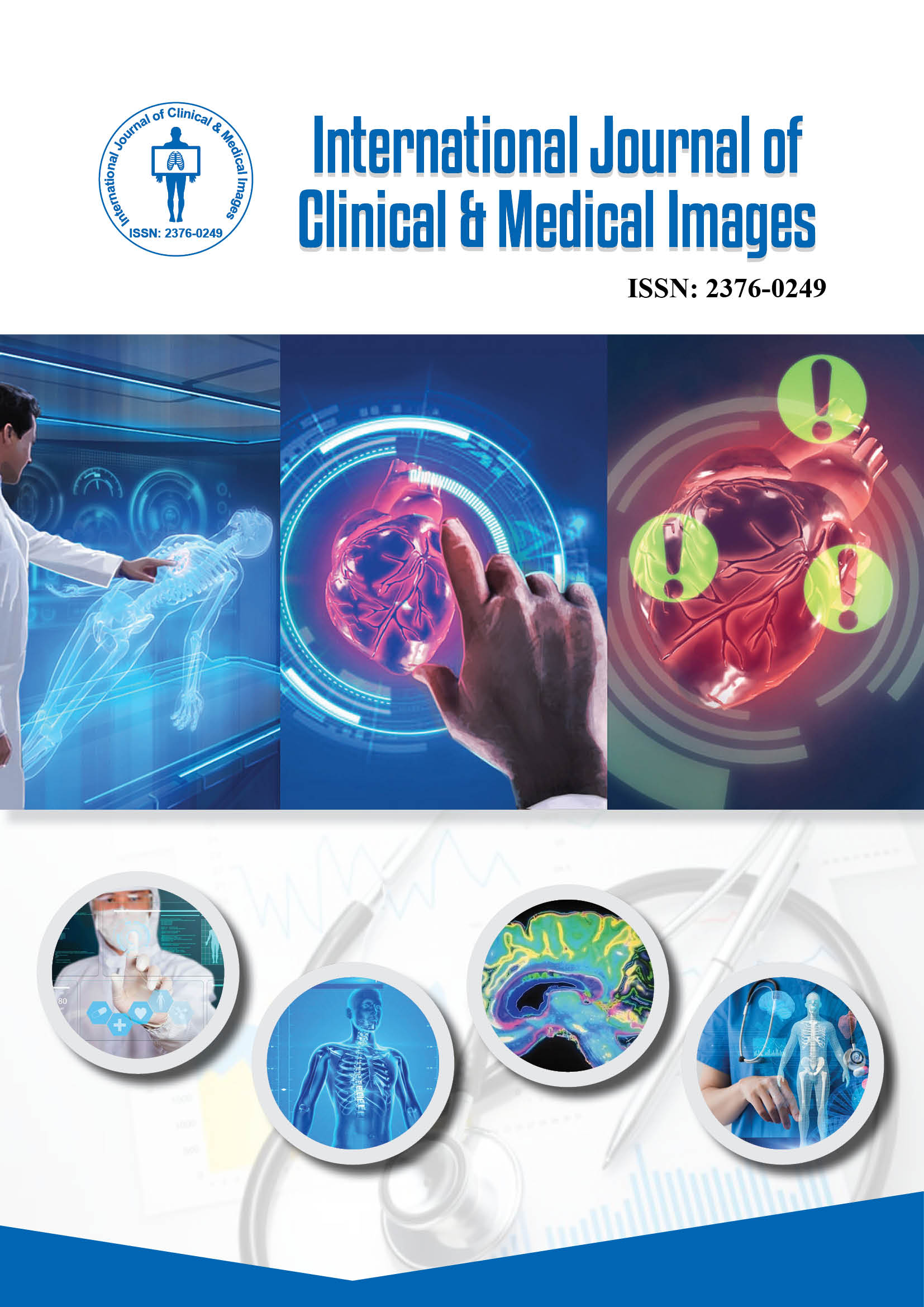2376-0249
Clinical-Medical Image - International Journal of Clinical & Medical Images (2024) Volume 11, Issue 7
Author(s): Silva Gomes*
Department of Pathology, Coimbra Hospital and University Center, 3004-561 Coimbra, Portugal
Received: 01 July, 2024, Manuscript No. ijcmi-24-145848; Editor assigned: 03 July, 2024, Pre QC No. P-145848; Reviewed: 15 July, 2024, QC No. Q-145848; Revised: 22 July, 2024, Manuscript No. R-145848; Published: 29 July, 2024, DOI:10.4172/2376-0249.1000966
Citation: Gomes S. (2024) The Role of Genetic Testing in Breast Cancer Screening and Prevention. Int J Clin Med Imaging 11: 966.
Copyright: © 2024 Gomes S. This is an open-access article distributed under the terms of the Creative Commons Attribution License, which permits unrestricted use, distribution, and reproduction in any medium, provided the original author and source are credited.
Breast cancer remains a significant global health challenge, and advances in genetic testing have profoundly impacted its screening and prevention strategies. Genetic testing, particularly for mutations in the BRCA1 and BRCA2 genes, has revolutionized our approach to breast cancer risk assessment, allowing for personalized preventive measures. This manuscript explores the integration of genetic testing into breast cancer screening, discussing its role in identifying individuals at increased risk, tailoring prevention strategies, and influencing clinical management. It also highlights the psychological and ethical considerations associated with genetic testing and the need for comprehensive counselling to support individuals navigating their risk. The evolving landscape of genetic research promises further refinement in screening protocols and personalized interventions, underscoring the importance of continued advancements in genetic testing for effective breast cancer prevention [1].
Breast cancer is a multifaceted disease with both genetic and environmental influences contributing to its development. The role of genetic testing in breast cancer screening and prevention has gained prominence, offering a powerful tool for risk assessment and management. Through the identification of genetic mutations, particularly in the BRCA1 and BRCA2 genes, genetic testing has provided new dimensions to understanding breast cancer susceptibility, enabling more targeted and personalized approaches to prevention and intervention. Genetic testing for breast cancer involves analysing an individual’s DNA to identify specific mutations that are associated with a higher risk of developing the disease. The BRCA1 and BRCA2 genes are among the most well-studied and recognized in this context. Mutations in these genes significantly increase the likelihood of developing breast cancer, as well as ovarian cancer, and can inform decisions regarding preventive measures. For individuals with a family history of breast or ovarian cancer, genetic testing can help ascertain whether they carry these high-risk mutations [2]. Genetic testing also informs decision-making regarding preventive medications, known as chemoprevention. Selective Estrogen Receptor Modulators (SERMs) and aromatase inhibitors are drugs that can reduce the risk of breast cancer in high-risk individuals. For those with BRCA1 or BRCA2 mutations, these medications may be considered in addition to or instead of surgical options, depending on individual risk factors and preferences.
Genetic testing; Breast cancer; Screening
None.
[1] Giraudo A, Sabatier R, Rousseau F, De Nonneville A and Gonçalves A, et al. (2024). The use of cyclin-dependent kinase 4/6 inhibitors in elderly breast cancer patients: What do we know?. Cancers 16(10): 1838.
Google Scholar, Crossref, Indexed at
[2] Johnston SR, Toi M, O'Shaughnessy J, Rastogi P and Campone M, et al. (2023). Abemaciclib plus endocrine therapy for hormone receptor-positive, HER2-negative, node-positive, high-risk early breast cancer (monarchE): Results from a preplanned interim analysis of a randomised, open-label, phase 3 trial. Lancet Oncol 24(1): 77-90.
 Awards Nomination
Awards Nomination

